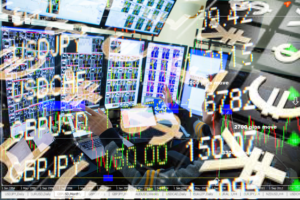The foreign exchange market is appealing for many reasons: not only does it offer a seemingly endless variety of pairs, it also provides the chance to trade based on dynamic, fast-moving news from the worlds of politics, economics and more. With major currencies from time zones around the world available to be traded, the forex market is open for business pretty much all the time during the week – which makes it particularly appealing for those who are on flexible schedules. But it does come with its complications. There are some big technical complexities to get your head around before you can successfully trade the forex markets, and it’s also unpredictable. Here, then, are some ways to prepare yourself to enter the market and then get cracking with your first forex trade.
What is foreign exchange?
Before you even begin to look for a broker, it’s important to spend as much time as you need working out what the forex market is all about. There are many reasons why foreign currencies are bought and sold, and the main one with which most people are familiar is the exchange of currencies for tourist or business travel purposes when heading to a foreign country. But there are other possible reasons. Forex traders buy up currency for speculative reasons – which means they aim to sell it on at a higher price than the one they bought it for, thus making a profit. Others buy foreign currency to “hedge”, or to have an asset which protects them in case the market moves in a direction which harms their existing interests.
Understanding the fundamentals
Forex trading instruments differ in appearance and structure from most other offers on the investment market, which means that those who diversify their trading portfolio from stocks and shares or similar instruments often find forex a difficult beast at first. Currencies are, for example, always traded in pairs: if you want to trade the US dollar, say, you’ll have to speculate on its rise relative to another currency.
Currencies are represented in three-letter codes, such as USD for the dollar, GBP for the British pound, and so on. The two currencies in question are separated by a slash, and the first currency in the pair is the one you’re hoping will rise. So, if you want to speculate that the US dollar will go up in value compared to the Japanese yen, for example, you’d need to invest in the USD/JPY pair.
There’s much more to forex trading than that, though, and this explanation can only scratch the surface of the foreign exchange market. There are plenty of books and online resources which offer advice on Forex trading for Beginners, and reading these will give you a comprehensive understanding of how this complicated yet often lucrative market works and what it means for a trader.
Find a calendar
International economic calendars are absolutely essential tools which should be in the arsenal of every forex trader – perhaps more so than any other financial trading instrument. They come full of important information which traders will need to execute orders in an informed manner, so they’re vital. When a country’s central bank updates its monetary policy for example, the forex market can shift in minutes – and you need to ensure that you’re aware of when these developments are happening so that you can price the potential changes into your trading decision. Luckily, the calendars are relatively easy to find online – and they’re usually free.
Choosing an instrument type
In the modern trading world, it’s increasingly common for traders to choose contracts for difference – or CFDs – when trading foreign exchange. These instruments are derived from the underlying market, which means the trader doesn’t actually own the currency. However, they benefit – and lose out – from the same market fluctuations as the “real” currency, and they can usually also access the market much faster as CFD brokers are speedy and online-oriented. Forex CFDs can also offer higher profits (and losses) for lower initial deposits as they’re traded on margin – which essentially means the trader is borrowing the remainder of the required deposit from the broker whenever they open a position. Some traders (or clients of traders) prefer to purchase the actual currency itself, and this may be more appropriate if margin trading is not required.
Working as a forex trader can be a tough gig, especially once the unpredictability and the complex fundamental principles are taken into account. And with other challenges like integration of accurate economic information into calendars to think about, forex trading can quickly become a hard job. That’s why information calendars, effective instrument type decisions and more should all be taken seriously. That way, the chances of your trading career getting off to the most successful and profitable start will be as high as possible.







